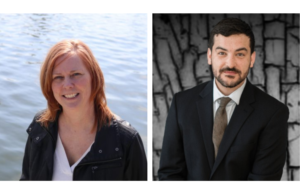Voluntary Approaches to Agricultural Water Pollution Reduction
Topic:

There are many contributing factors, through both point and non-point sources, to water quality impairment in the United States. Numerous agricultural groups and others are actively engaged in addressing water quality concerns throughout the country. Congress chose to address point source pollution under the Clean Water Act using a regulatory approach with mandatory and prescriptive standards and permits. Agricultural runoff pollution, on the other hand, is managed via a state-led approach that is largely voluntary.
States use a broad array of voluntary approaches that allow individuals to choose whether or how to follow a course of conduct that could reduce the negative impacts of agricultural runoff on water quality. In this webinar we’ll discuss types of voluntary approaches to agricultural water pollution reduction, particularly focusing on the current state of water quality trading and adaptive management frameworks.
Time and Date:
Wednesday, July 7, 2021
12:00 – 1:00 (EST)
11:00 – 12:00 (CST)
Participation:
This webinar was recorded on July 7, 2021. Click here to view a recording of the webinar.
Presenters:
Linda Reid, Principal Owner, Water 356, LLC.
Linda has effectively merged her lifelong love of Lake Michigan with her professional life as the owner of Water365, LLC, where she works collaboratively with individuals and organizations to support freshwater sustainability and climate resilience efforts through capacity development, technical consulting, and coaching.
Formerly the Executive Director of Southeastern Wisconsin Watersheds Trust (Sweet Water) and the Director of the University of Wisconsin-Whitewater’s Institute for Water Business, she has over 15 years of experience with industry, government, and academic organizations in the freshwater space, focusing mainly on policy and legal issues. Linda earned her Juris Doctor degree from the University of Arkansas School of Law and previously worked in the private sector as an attorney and in academia as a tenured associate professor teaching business and water law courses.
Linda has an adult son, Cale, who lives in New York, and a Whippet named Tadhg who lives with her in Milwaukee. She enjoys kayaking, beachcombing, riding her motorcycle, and traveling to Ireland.
Benjamin Edelstein, Marquette University School of Law.